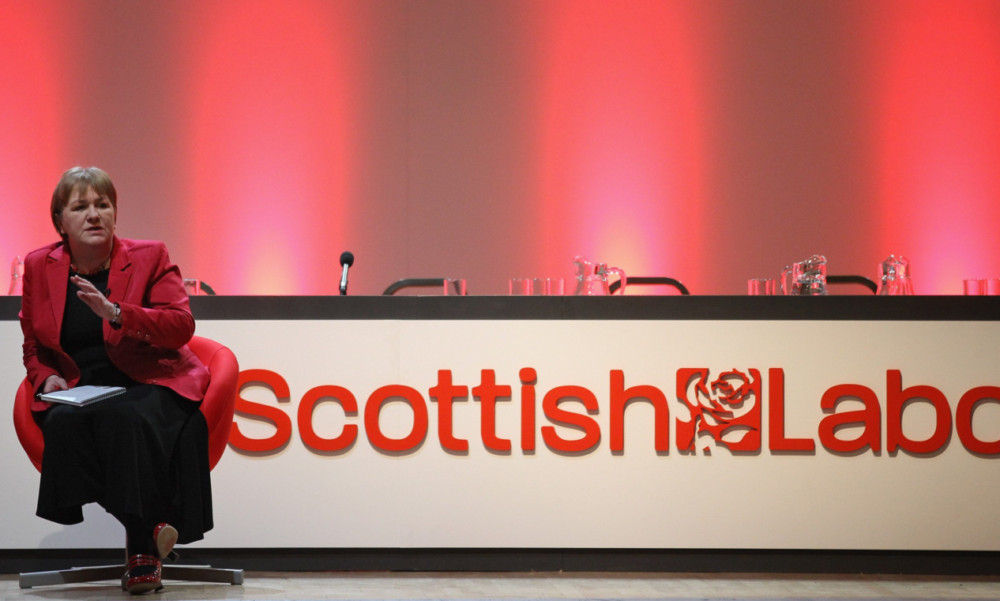
When the referendum on independence is held next year, we’ll have a simple yes-no question to answer.
Alex Salmond, of course, wanted two questions, with the option of strong additional powers for the Scottish Parliament as the second option.
Opposition parties were united in opposing this plan, believing that this would give Mr Salmond the opportunity to claim victory if the “more powers” option won the vote as was thought likely.
However, we now have the ludicrous situation of the Opposition parties handing the SNP this victory without even holding a vote on it.
The Liberal Democrats are already committed to more powers, favouring a federal UK.
The Conservatives have erased Ruth Davidson’s “line in the sand” on more powers, and are currently consulting on what more they can offer.
And this weekend, the Scottish Labour Party gathers in Inverness for their annual spring conference, with more powers for Holyrood the headline issue.
Scottish Labour leader Johann Lamont has unveiled the results of her internal devolution commission.
The main finding is the proposal that the Scottish Parliament should be responsible for total control of income tax north of the border.
Added to the new powers due to be transferred to Holyrood in 2015, this would give the Scottish Parliament almost total fiscal autonomy.
Needless to say, not everyone in the Labour Party is happy about the plan. They meet in Inverness amid reports of discord between representatives of the party at Holyrood and Westminster.
Several Westminster MPs are absent and it has been claimed they are boycotting the conference over Ms Lamont’s devolution plans.
Many Old Labour MPs have never been comfortable with the powers which Holyrood already has, and the thought of the Scottish Parliament taking even more powers from Westminster is just too much for them to swallow.
Some claim they had not been consulted over Ms Lamont’s plans.
It has also been alleged that the Scottish leader has not discussed her proposals for devolving tax to Holyrood with Shadow Chancellor Ed Balls.
There have also been reports of dissent among the Scots in the Shadow Cabinet at Westminster, with Jim Murphy, Douglas Alexander and Margaret Curran said to be at loggerheads over the Lamont proposals.
Many in Labour believe they are simply dancing to Mr Salmond’s tune. And it is difficult to disagree with that suggestion.
History tells us that every time there’s a surge in the polls for the SNP, or they are doing well at elections, the other parties appear eager to give that little bit more ground on devolution.
Remember, it was the Nationalists’ success in the 1970s which led to the first devolution referendum in 1979.
And, post-devolution, the additional powers granted by the Calman Commission, set up by the opposition parties, came after the SNP took control of Holyrood for the first time.
Needless to say, the Nationalists have seized on Labour’s internal strife.
SNP MSP Annabelle Ewing, who sits on Holyrood’s Referendum Bill Committee, said the split was very embarrassing for Johann Lamont.
“She was supposed to be the first leader of the whole Labour party in Scotland, but she is clearly not leading Labour’s Scottish MPs,” she claimed.
“Since Johann Lamont announced this devolution commission very little has been heard about it and it is clear that Labour MPs, like most others in the Labour party, have not been offered any chance to contribute.
“Ultimately, if Scots did vote no in the referendum, we would be relying on MPs such as these to devolve powers to Scotland, which they evidently have no intention of doing,” she claimed.
However, privately, Mr Salmond must be delighted. If he, and others in his party, had been told 10 years ago that Labour would be proposing such sweeping powers for Holyrood, they would have grabbed it with both hands.
The referendum is starting to look like a win-win for the Nationalists.
Many within the SNP have always seen the road to full independence as a series of gradual changes, rather than a single leap.
It appears that Labour and the other Opposition parties are handing the Nationalists exactly that option.

Enjoy the convenience of having The Sunday Post delivered as a digital ePaper straight to your smartphone, tablet or computer.
Subscribe for only £5.49 a month and enjoy all the benefits of the printed paper as a digital replica.
Subscribe